Test Bank for Philosophical Foundations of Education, 9/E 9th Edition Howard A. Ozmon
$38.00
ISBN-10: 0132540746
ISBN-13: 9780132540742
For Philosophical Foundations of Education, Introduction/Foundations of Education, or Social Foundations of Education courses.
A balanced examination of the major schools of thought of philosophy in education throughout history, with an emphasis on each philosophy’s continuing relevance in teaching and learning today.
Now in its ninth edition, Philosophical Foundations of Education provides readers with comprehensive knowledge about the various schools of thought that have comprised the philosophy of education throughout history. Highly readable, this chronological text gives insight into the individuals who helped develop various philosophies of education and provides historical information about how they lived and how they learned. In addition, each chapter covers each philosophy’s aims, methods, curriculums, teaching roles, advantages, and disadvantages.
Covering not only how each philosophy evolved over time but also how these philosophies influenced subsequent educational practice, this popular survey textbook also challenges readers to apply what they have learned in their own profession and develop their own philosophies about education, instruction, and schooling.
- Description
- Reviews (0)
Description
You will receive this product immediate after placing the order
CHAPTER 1: IDEALISM AND EDUCATION
DEVELOPMENT OF IDEALISM
DEVLOPMENT OF MODERN IDEALISM
IDEALISM AS A PHILOSOPHY OF EDUCATION
CRITIQUE OF IDEALISM IN EDUCATION
Plato: The Republic
Kant: Education
CHAPTER OVERVIEW
Idealists believe that ideas are the only true reality. They do not reject material reality, but hold that the material world is characterized by change, instability, and uncertainty, while ideas are enduring.
DEVELOPMENT OF IDEALISM
The ideas of Socrates were transmitted orally through a dialectical question and answer approach. Plato wrote about and expanded many of them, and he encouraged a Socratic approach to thinking. He held that we should concern ourselves primarily with the search for truth. Since truth is perfect and eternal, it cannot be found in the material world of matter that is imperfect and constantly changing. Mathematics demonstrated that eternal truths were possible, and Plato believed that we must search for other universal truths in areas such as politics, religion, and education; hence, the search for timeless truth should be the quest of the true philosopher.
Plato did not think that people create knowledge; rather, they discover it through the dialectic. He proposed an education he thought would help develop a world where individuals and society are moved as far as they are capable toward the Good, and he suggested that the state must take a very active role in educational matters. He maintained that the curriculum should lead students from a concern with concrete data to higher abstract thought. Plato also believed that until philosophers were rulers, states would never pursue the highest ideals of truth and justice.
Idealism exerted a great influence on Christianity. The idea of God as pure Spirit and the Universal Good is compatible with idealism. Augustine was greatly concerned with the concept of evil and believed that man was continuously engaged in a struggle to regain purity. He accepted Plato’s notion of the world of ideas and the world of matter, but he referred to the two worlds as the World of God and the World of Man. To religious idealists, ultimate reality is God, and our bridge to it is the mind or soul.
DEVELOPMENT OF MODERN IDEALISM
Descartes explored “methodical doubt” and developed the idea of the Cogito, or “I think, therefore I am.” He encountered the necessity of one idea referring to another, and he found it impossible to arrive at any idea that did not refer to something other than itself, except the idea of Perfect Being. Finite mind contemplates objects of thought founded in God, or in Platonic terms, the human mind contemplates the ultimate reality of ideas.
Berkeley held that all existence is dependent on some mind to know it, and nothing exists unless it is perceived by some mind. To say that a thing exists means that it is perceived, or esse est percipi (to be is to be perceived).
Hume concluded that all we can know are our own impressions and ideas; therefore, we have no adequate basis for asserting the reality of either material or spiritual things. Hume was a skeptic who held that we cannot discover anything that justifies necessary connection or causation. To connect one occurrence with another is merely the habit of expecting one event to follow another based on previous experience.
Kant accepted modern science, and he believed he had devised a new system with valid knowledge of human experience based on scientific laws. In his ethics and moral philosophy, he developed what he called moral “imperatives,” such as to treat each person as an end and never as a mere means. To Kant, the important thing was to teach a child to think according to principles.
Hegel developed a system of logic he thought would correct the inadequacies of Aristotelian logic. He conceived of logical thought as a dialectical continuum that moves toward richer, more complete syntheses. To Hegel, history showed this movement just as logical thought processes did. He thought that in order to be truly educated, an individual must pass through the various stages of the cultural evolution of mankind.
Royce believed that ideas are essentially purposes or plans of action. Human purposes are incomplete without an external world in which they may be realized, and the external world is meaningless unless it is the fulfillment of such purposes.
IDEALISM AS A PHILOSOPHY OF EDUCATION
Idealists generally agree that education should stress the development of the mind, and it should encourage students to focus on ideas of lasting value. Major emphases include the search for truth and the importance of mind over matter.
The concern for the individual is one of the main characteristics of idealism. Education should be concerned with self-realization, a central aim of idealist education, but the individual self is only a part of the whole and has meaning only in the larger context.
Idealists are also concerned with character development, and they believe that good education should make this a central goal. They believe that moral values need to be nurtured by schools and that educators have an obligation to present students with appropriate role models for emulation.
Idealists do not favor specialized learning as much as holistic learning and their curriculum is composed of a liberal arts approach with broad concepts rather than specific skills. Idealists stress that education at all levels should teach students to think, assist in the development of good character, and that teachers should maintain a constant concern for the ultimate purposes of learning.
CRITIQUE OF IDEALISM IN EDUCATION
Points of strength in idealism include (1) the high cognitive level of education idealists promote, (2) the concern for safeguarding and promoting cultural learning, (3) concern for morality and character development, (4) a view of the teacher as a person of respect central to the educational process, (5) the importance of self-realization, (6) a stress on the human and personal side of life, and (7) a comprehensive, systematic, and holistic approach toward education and a study of the world.
Some critics argue that the idealist notion of a finished and absolute universe waiting to be discovered has hindered science and the creation of new ideas. If one accepts the concept of absolute ideas, it is not possible to go beyond them. While idealists have emphasized the cognitive side of life, they have sometimes emphasized intellectualism to the detriment of students’ affective and physical development, and some critics maintain that the idealist approach tends to promote intellectual elitism.
One thing championed by idealists is that they give more attention to character development than do advocates of other philosophies. Their critics note, however, that the idealist view of character development sometimes promotes conformity and subservience on the part of learners.
PROJECTS
1. Form a group and consider how an ideal society might be achieved through education. Keep in mind that in Plato’s ideal society all things were interwoven: education, government, and social life. Decide what role education should play in an ideal society.
2. Examine various school curricula and educational aims in your community for their commitment to idealist principles, such as character development and higher social purposes. Determine the central ideas that give focus to these materials. Are the curriculum plans helpful? What are the strengths and weaknesses you detect, and what suggestions can you make for improvement?
IDENTIFICATIONS
the Academy
Doctrine of Reminiscence
Confessions
Critique of Practical Reason
deduction
Allegory of the Cave
dialectic
Transcendentalism
De Magistro
Absolute Spirit
Temple School
DISCUSSION AND ESSAY QUESTIONS
1. Discuss Plato’s definition of truth. Why does he maintain that truth is eternal and perfect? How do most people feel about truth today? Is truth relative or is it absolute?
2. How did Plato view democracy? How did these views influence his ideas on education? Can democracy be justified from an idealist perspective? Why or why not?
3. Discuss ideas for order and control in the schools as recommended by William T. Harris. How do these recommendations accurately reflect idealist philosophy? Do these ideas have merit in today’s schools? Explain your position.
4. Why do idealists cast doubt on the merits of studying the material world? How do idealists react to the emphasis on technical and specialized education in schools today? Consider this idealist view for its appropriateness to contemporary life.
5. What does Socrates mean by calling himself a gadfly? Should education seek to develop more such gadflies today?
6. Augustine maintains that we must believe in order to know, and that faith must transcend reason in order for us to enter the realm of true ideas. What are the implications of having to believe something in order to know it? How does this conflict with our current ways of teaching?
7. What does Kant believe is the proper punishment for a child who has lied? From your point of view is such punishment appropriate?
MULTIPLE CHOICE QUESTIONS
1. Idealism promotes a curriculum that emphasizes
a. contemporary ideas.
b. lasting ideas.
c. changeable ideas.
d. profitable ideas.
2. Plato believed that mathematical concepts, such as 2 + 2 = 4, show the kind of knowledge that is
a. relative truth.
b. fleeting and changeable.
c. true but trivial.
d. perfect and eternal.
3. The idealist emphasis on a liberal arts type of education is based on a belief that
a. true ideas are based only in fact.
b. truth is holistic rather than specialized.
c. ideas are created rather than discovered.
d. changeable ideas must fit the present.
4. Descartes’ attempt to doubt all existence led him to the idea of the Cogito, or
a. “Everything that exists can be measured.”
b. “To be is to perceive an existence.”
c. “I think, therefore I am.”
d. “Existence is essence.”
5. According to Plato, the best way to reach truth is through
a. meditation.
b. the dialectic.
c. problem solving.
d. social interaction.
6. According to Kant, the essence of education is “enlightenment,” or teaching a child to think according to
a. the subjective world uncovered by scientific law.
b. objective creativity within a subjective world.
c. the rigorous art of contemplating true ideas.
d. principles as opposed to mere random behavior.
7. The steep ascent of the escaping prisoner in the “Allegory of the Cave” best represents which of the following?
a. failure to contemplate ultimate truth.
b. the effects of dialectical reasoning.
c. conjecture on the Ascendance of God.
d. shadows on the mind.
8. The “Socratic method” in education refers to the notion of
a. deducing truth from revealed knowledge.
b. employing physical specimens in teaching.
c. developing concepts through questioning.
d. teaching through the five senses.
9. The idealist emphasis on subjective self-realization in education has its most likely origins in
a. Descartes’ declaration that “I think, therefore, I am.”
b. Smith’s view of economic self-interest.
c. Mead’s belief in the social self.
d. Hume’s skepticism about subjective perception.
10. The Hegelian influence on idealist education can be seen in the emphasis on the individual’s destiny being tied to that of
a. the gadfly.
b. one’s peer group.
c. economic self-interest.
d. Spirit.
11. For Plato, art was an important concern in education, and he believed that art should
a. be used to promote the free expression of students.
b. help students acquire a variety of political ideologies.
c. be regulated and controlled for the good of the state.
d. cultivate religious ideas of personal salvation.
Be the first to review “Test Bank for Philosophical Foundations of Education, 9/E 9th Edition Howard A. Ozmon”
You must be logged in to post a review.





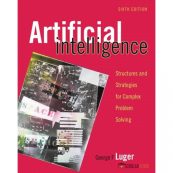
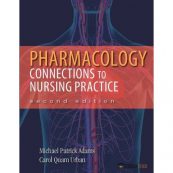

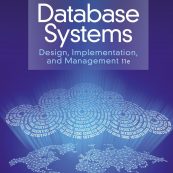

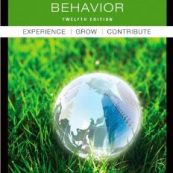
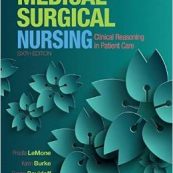
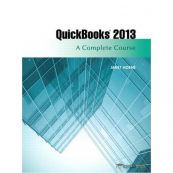
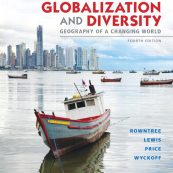
Reviews
There are no reviews yet.